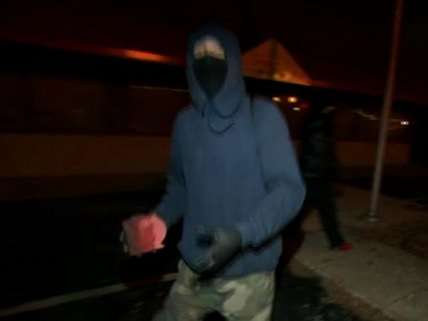Post-Ferguson Police Reforms Require Look at Police Unions, Structural Power, Not "Community Relations"


A long piece from The Nation explains "why it's impossible to indict a cop" and the systemic hurdles to police reform, including, briefly, the role of police unions:
Firing a police officer with a record of abusive behavior (or worse) is often extremely difficult and can carry a heavy political cost. Patrolmen Benevolent Associations, which have escaped the kind of resentment directed at other public-sector unions, tend to be powerful players in local politics able to inflict pain on any politico who would cross them. (Remember when Sarah Palin struggled to fire a state trooper and ex-brother-in-law who had allegedly acted like a thug towards her sister?)
As The Nation alludes to, many conservatives who otherwise distrust the power of public unions are highly deferential to police unions. Wisconsin Gov. Scott Walker's union reform bills exempted police and firefighters even as police and firefighter unions joined protests against the legislation. Meanwhile in Ohio John Kasich's union reform attempts did include police and firefighter unions but unlike in Wisconsin, the Ohio proposals failed in the legislature. Libertarians and other consistent critics of the asymmetrical power and privilege secured by public unions don't exempt police unions.
Later on in the piece, The Nation dismisses the self-regulatory regime designed with the help of the police unions, comparing it to "self-regulation" in the poultry-processing or coal mining business. An more apt analogy would be to ether public sector jobs whose unions have created cushy self-regulation. From teachers to federal workers, almost any example works. When it's more difficult to terminate employees, it's more difficult to eliminate bad employees. This is dangerous in the public sector, where government employees, like cops, tend to get a lot of deference in their exercise of power over the public, which is represented at the negotiating table by other government employees.
The Nation goes on to identify what it calls the "criminalization of working-class people" as one contributing factor to police abuse. The proliferation of petty laws aimed at raising revenue does aggravate the problem. While The Nation focuses on police models that involve targeting known violent gang members and not the community at large, the "decriminalization of working-class people" will also require rolling back laws, laws often supported by progressives.
The Nation makes an important point that's often been lost in the "national conversations" after Ferguson:
Police demilitarization, the decriminalization of working-class people, new policing models: these are all projects that could work in Ferguson and thousands of other American cities. Although none of these large-scale ideas is explicitly race-conscious, they would most likely tighten the severe racial disparities in policing violence that exist all over the country, more so than pouring more money into racial sensitivity training for cops. (Changing residency requirements of municipal police officers to get a more ethnically representative force might help a little, though research shows that such requirements correlate with less confidence in the police, not more.)
These big-picture reforms are fundamentally political solutions that will require long-term effort, coalition politics that spans race, ethnicity and political affiliation—a challenge, but also a necessity.
The problem of police violence is a problem of government violence. Solutions will have to involve restraining government. There are people on the left and the right, lots of them, who almost worship the institutions of government. They may have their pet peeves, institutions they don't like depending on their political affiliation, but they trust in the power of government to accomplish things when it comes to their agenda. Others on the right, and the left, have a more healthy distrust of government, one that cuts across sectarian agendas. The Nation is right that police reform is not something that will happen without coalition-building. That makes it important to, like The Nation did in this piece, direct the focus at systemic solutions not just racial or class ones.
Yesterday Attorney General Eric Holder released a statement ahead of the Ferguson grand jury announcement, saying the conversation surrounding the shooting of Michael Brown was "about the need to ensure confidence between law enforcement and the communities they protect and serve." It's not, or at least it shouldn't be. Conversations around police violence focused on community relations aren't helpful because they keep the issue of the systemic power wielded by police out of view in favor of mere race-consciousness in the application of that power. The conversations have to be about restoring the constitutional rights and protections of the people and rolling back the systemic power enjoyed by cops that has helped destroy those constitutional rights. The only effective police reforms are ones that target that systemic power, and not just applications of it deemed media friendly or race- and class-conscious.


Show Comments (106)